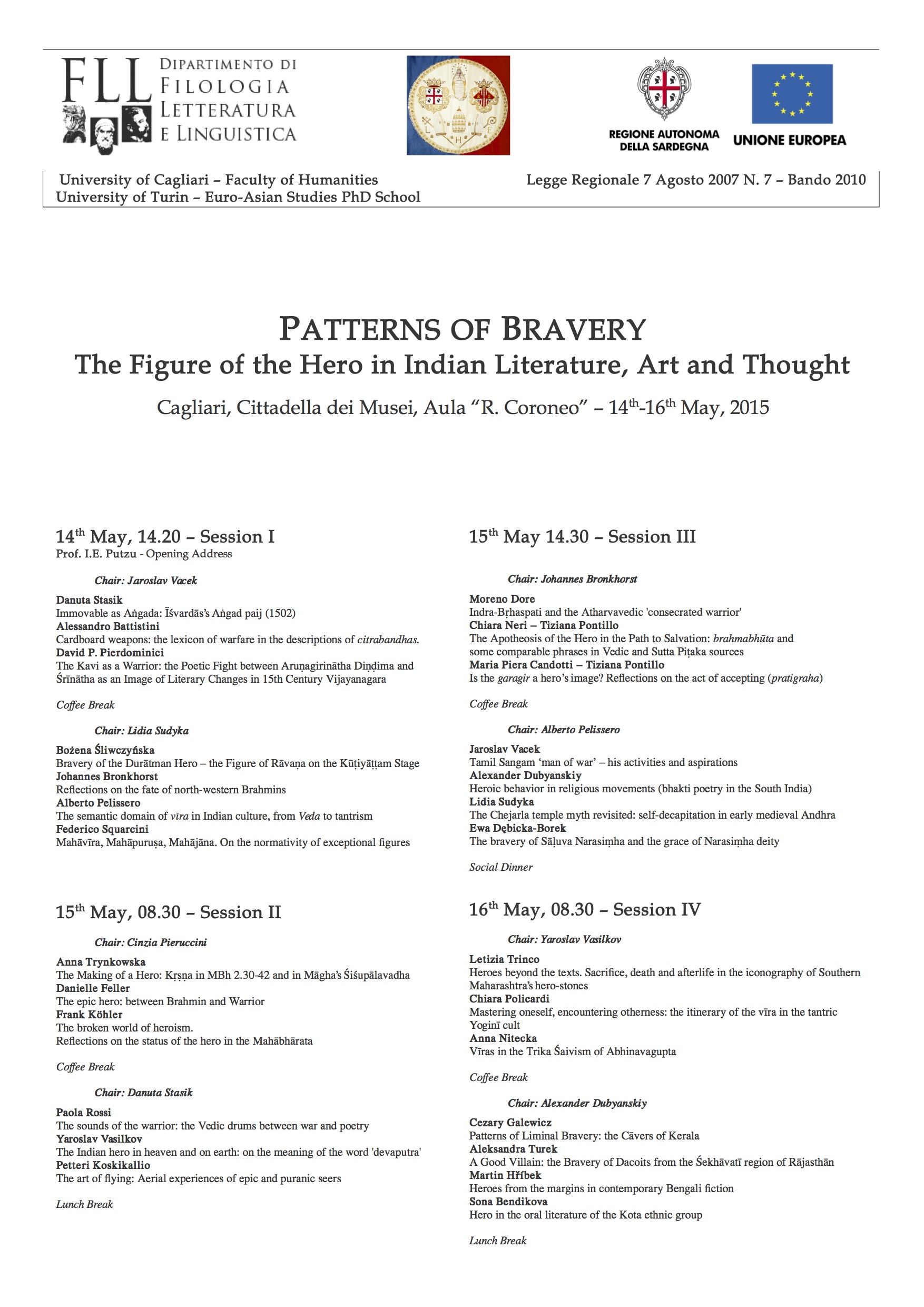Are words an instrument of knowledge? And, if so, what sort of? Are they an instance of inference insofar as one infers the meaning on the basis of the words used? Or are they are an independent instrument of knowledge, since the connection between words and meanings is not of inferential nature?
Category Archives: Sanskrit Philosophy
Two (or three) different narratives on Yoga, Mīmāṃsā, Viśiṣṭādvaita Vedānta etc.
Some authors tend to think that once upon a time there was one Yoga and that later this has been “altered” or has at least “evolved” into many forms. According to their own stand, they might look at this developments as meaningful adaptations or as soulless metamorphoseis.
Philosophy’s crudity and Narrative’s epistemological value
A recent post by Elisabeth Barnes raised a discussion in several blogs about philosophy’s “casual cruelty”. Philosophers, it is said, argue about basic human rights in an abstract way, with thought experiments daring to ask whether it would be ethical to let die disabled children/abort disabled foetuses/prohibit disabled people to have children/… . Philosophers do not even stop speculating about the suppression of disabled people, Barnes continues, when they have a real disabled person in front of them.
Patterns of Bravery. The Figure of the Hero in Indian Literature, Art and Thought
Cagliari, 14th--16th May 2015
Tiziana Pontillo signalled me the conference mentioned in the title. You can download the flyer here.

From the point of view of methodology, let me praise T. Pontillo for the fact that she will give two joint papers. Let us all learn from each other and dare more cooperative work (if we enjoy it)!
Human beings as animals
Humans are not animals according to Descartes’ distinction of res cogitans and res extensa. They are also not animals according to many Christian theologians (Jesus came to save humans, not animals). Perhaps humans are not (only) animals also according to the Aristotelian definition of human beings as “rational animals”, which attributes to humans alone a distinctive character. Humans are also quite different than animals when it comes to their respective rights. But here starts a moot point:

from http://www.popsci.com/should-animals-same-rights-people
Leiden Summer School on Vedic, Śaiva Literature, Sanskrit theatre, Old Javanese…
Daniele Cuneo, who will be holding the class at the Slot 4, asked me to forward the relevant information concerning the Indology program of the Leiden Summer School in Languages and Linguistics (Monday 13 July-Friday 24 July 2015):
Workshop “Language as an independent means of knowledge in Kumārila’s Ślokavārttika“
Workshop
Language as an independent means of knowledge in Kumārila’s Ślokavārttika
| Time: | Mo., 1. Juni 2015–5. Juni 2015 09:00-17:00 |
| Venue: | Institut für Kultur- und Geistesgeschichte Asiens, Seminarraum 2 |
| Apostelgasse 23, 1030 Wien | |
| Organisation: | Elisa Freschi |
Topic
During the workshop, we will translate and analyse the section dedicated to Linguistic Communication as an instrument of knowledge of Kumārila Bhaṭṭa’s (6th c.?) Ślokavārttika. The text offers the uncommon advantage of discussing the topic from the point of view of several philosophical schools, whose philosopical positions will also be analysed and debated. Particular attention will be dedicated to the topic of the independent validity of Linguistic Communication as an instrument of knowledge, both as worldly communication and as Sacred Texts.
Detailed Contents
Ślokavārttika, śabdapariccheda,
v. 1 (Introduction)
v. 3–4 (Definition of Linguistic Communication)
v. 15 (Introduction to the position of Sāṅkhya philosophers)
vv. 35–56 (Dissussion of Buddhist and Inner-Mīmāṃsā Objections)
vv. 57ab, 62cd (Content communicated by words and sentences) [we will not read vv. 57cd–62ab, since they discuss a linguistic issue]
vv. 63–111 (Discussion of Buddhist Objections)
Commentaries to be read: Pārthasārathi’s one (as basis) and Uṃveka’s one (for further thoughts on the topic)
X-copies of the texts will be distributed during the workshop. Please email the organiser if you want to receive them in advance.
For organisative purposes, you are kindly invited to announce your partecipation with an email at elisa.freschi@oeaw.ac.at.
The present workshop is the ideal continuation of this one. For a pathway in the Śabdapariccheda see this post.
Arthāpatti and the Kevalavyatirekin anumāna
In the arthāpatti reading group we are currently reading the chapter on arthāpatti of Śālikanātha’s Prakaraṇapañcikā. As already discussed, Śālikanātha differentiates arthāpatti from anumāna insofar as in the latter the gamaka `trigger of the cognitive process’ is doubted, whereas, it is not so in the case of the anumāna, which can only start once the hetu ‘logical reason’ is certainly ascertained. At a certain point, however, Śālikanātha discusses whether the arthāpatti could not be understood as a kevalavyatirekin anumāna, an inference based only on negative concomitance.
How to know God?
Basically, we can either claim that God can be known through reason alone (Samuel Clarke, Anthony Collins, Voltaire, Kant, Nyāya, Śaivasiddhānta…) or that S/He can be known through personal insight and/or Sacred Texts (Śrī Vaiṣṇavas after Yāmuna, Gauḍīya Vaiṣṇavas…).

Arne Niklas Jansson
The making of Śrīvaiṣṇavism: A tentative hypothesis about its reconstruction
It is difficult to disentangle the different roots of what is now known as Śrīvaiṣṇavism, since this term is usually the label attributed to the religious counterpart of the philosophical-theological school of Viśiṣṭādvaita Vedānta. However, Vaiṣṇavism was apparently an important presence in South India well before the beginning of the philosophical enterprise
